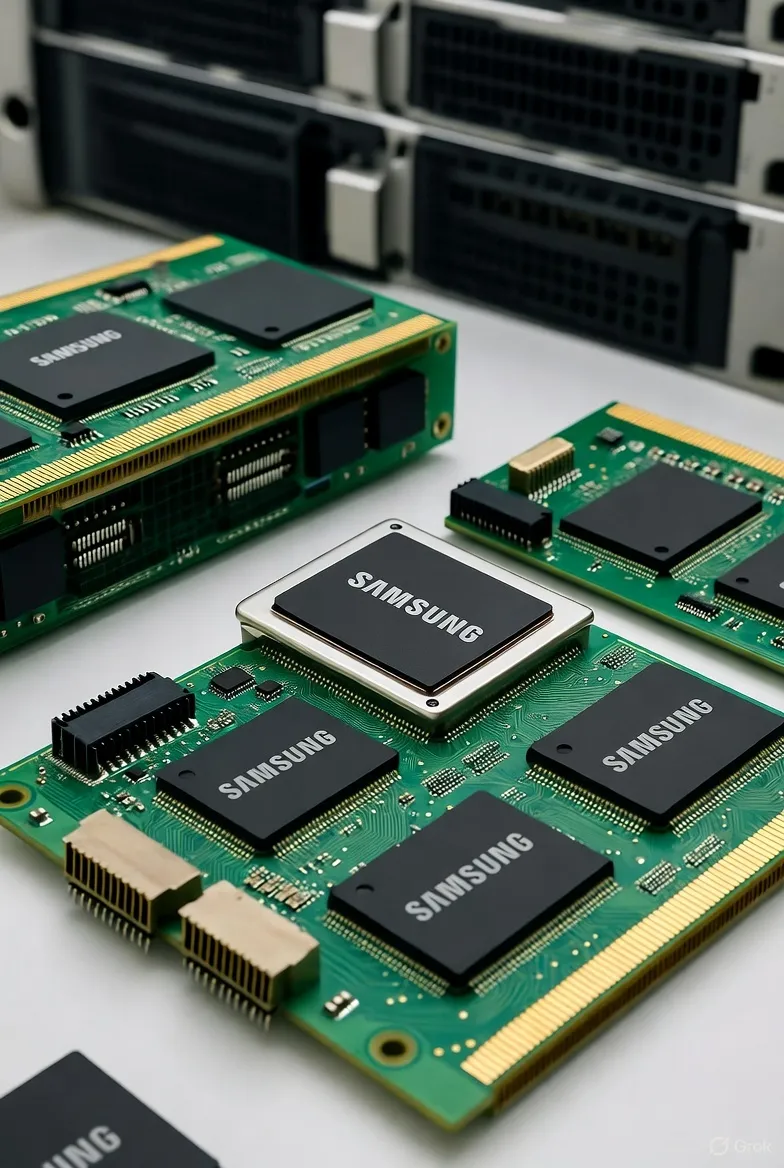Samsung Electronics is currently in discussions with Nvidia regarding the supply of its next-generation HBM4 chips, as the company seeks to strengthen its position in the AI chip market. While Samsung did not provide a specific timeline for the launch of HBM4, SK Hynix, a rival and top supplier for Nvidia, has announced plans to start shipping its own HBM4 chips in the fourth quarter of this year.
Nvidia confirmed its collaboration with Samsung, mentioning supply agreements for both HBM3E and HBM4 chips. Additionally, Samsung plans to acquire 50,000 high-end Nvidia chips to enhance its semiconductor manufacturing capabilities.
Following these announcements, Samsung's shares saw an increase of 4.32%. During a recent meeting between Samsung's Chairman Jay Y. Lee and Nvidia CEO Jensen Huang, Lee highlighted the longstanding relationship between the two companies.
Analysts, including Jeff Kim from KB Securities, suggest that while HBM4 may require further testing, Samsung is well-positioned to capitalize on its production capacity. If successful, Samsung could significantly improve its market share in the HBM segment, which has been challenging due to competition from SK Hynix.
Samsung's recent performance has shown recovery, driven by demand for conventional memory chips, despite a slower response to the AI-driven memory chip boom. The introduction of HBM4 will be a critical test for Samsung as it aims to regain its competitive edge in the market.
HBM technology, which has been in use since 2013, involves vertically stacking memory chips to optimize space and reduce power consumption, crucial for handling the data demands of complex AI applications. Investors are keenly observing whether Samsung's HBM4 can close the gap with SK Hynix's advanced memory offerings.
